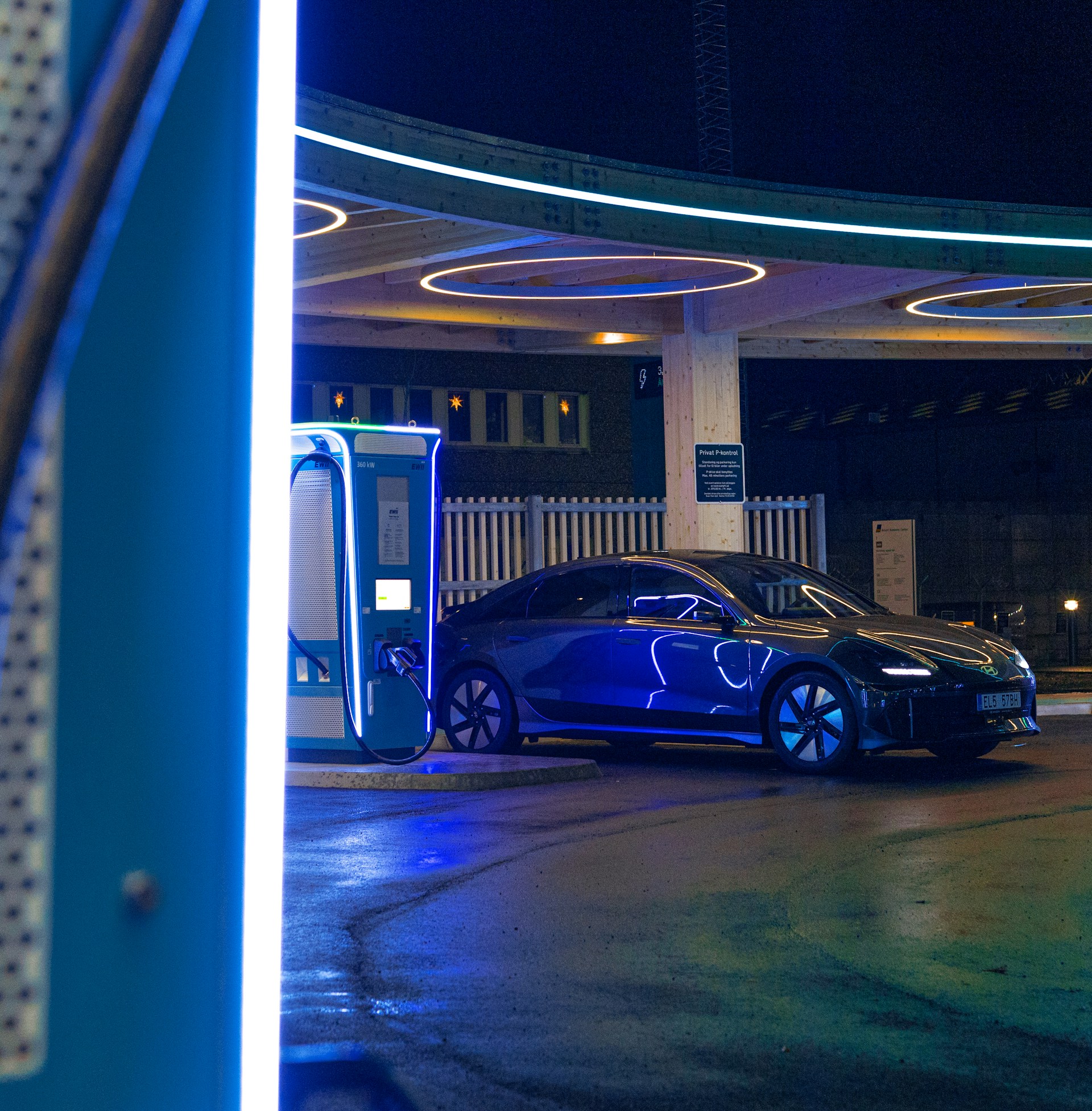Can You Improve the Fuel Economy of a Hyundai Ioniq with a Custom Aero Kit?

As drivers, you may often find yourselves questioning whether there are ways to get more miles per gallon (MPG) out of your cars. One vehicle that offers impressive fuel economy out of the box is the Hyundai Ioniq. But, can you improve its MPG even further? Specifically, can the addition of a custom aero kit enhance the fuel economy of this already efficient vehicle? Let’s find out.
Understanding the Hyundai Ioniq
Before diving into the impact of an aero kit, let’s explore the Hyundai Ioniq model itself. Known for its standard impressive fuel economy, the Hyundai Ioniq is a popular choice among drivers conscious of their carbon footprint and those who want to save on fuel costs.
Sujet a lire : What’s the Best Method to Keep Your Car’s Electronic Systems Up-to-Date?
Hyundai offers three different Ioniq models to cater to varying consumer needs: the Ioniq Hybrid, the Ioniq Plug-in Hybrid, and the Ioniq Electric. Each model boasts its unique set of features, but all maintain Hyundai’s commitment to high fuel efficiency and lower emissions.
The standard Ioniq Hybrid model, for instance, promises up to 58 MPG. This vehicle comes with a 1.6-liter, four-cylinder engine paired with an electric motor, delivering a combined power of 139 horsepower. It also features regenerative braking, which recaptures energy during deceleration and converts it into electricity, further enhancing its fuel efficiency.
Sujet a lire : Is It Possible to Retrofit a Heated Steering Wheel in an Older BMW?
How Aero Kits Work
When considering the introduction of a custom aero kit to your car, it’s crucial to understand how these kits work and their potential effects on your vehicle’s performance. Aero kits, commonly used in the world of racing, are designed to enhance a car’s aerodynamics.
In essence, an aero kit redirects the airflow around your vehicle, reducing drag and thus, theoretically, improving fuel economy. The components of an aero kit — such as front and rear spoilers, side skirts, and diffusers — are strategically placed to manipulate airflow and minimize turbulence. By doing so, the car can ‘cut’ through the air more efficiently, which could lead to less fuel consumption.
The Impact of an Aero Kit on Hyundai Ioniq’s Fuel Economy
Applying the principles of aerodynamics to a already fuel-efficient vehicle like the Hyundai Ioniq may seem like a no-brainer. However, several factors need to be considered.
Firstly, the weight of the aero kit may counteract the benefits gained from improved aerodynamics. Aero kits, while designed to be lightweight, still add extra weight to your vehicle, which could impact the MPG. Secondly, the design of the Hyundai Ioniq has been optimised for efficiency, with Hyundai engineers already incorporating many aerodynamic features into the standard vehicle model.
Therefore, while an aftermarket aero kit might give your Ioniq a sportier look, the actual impact on fuel economy could be negligible or even detrimental, depending on the quality of the kit and the added weight.
Hyundai Ioniq’s Other Fuel Economy Enhancing Features
A focus on aerodynamics is not the only way Hyundai has sought to boost the Ioniq’s fuel economy. Several other features have been incorporated into the design of this car to maximize its MPG.
For instance, Hyundai has equipped the Ioniq with a six-speed dual-clutch transmission (DCT). Unlike traditional automatic transmissions, a DCT offers improved efficiency by eliminating the need for a torque converter. Additionally, the Ioniq features an ‘ECO-DAS’ (Driving Assistant System), which analyses driving routes set in the navigation system to optimize fuel consumption.
Moreover, the Ioniq offers three distinct driving modes — eco, sport, and normal — that alter the performance characteristics of the vehicle to suit different driving conditions and styles. In ‘eco’ mode, the vehicle prioritizes MPG, adjusting throttle response and climate control settings to conserve fuel.
Charging, Warranty, and Other Considerations
While the potential for a custom aero kit to improve the Hyundai Ioniq’s fuel economy is debatable, it’s also important to view this vehicle’s fuel efficiency in the broader context of its overall value proposition.
Beyond its impressive MPG, the Ioniq also offers several other attractive features. For instance, the Ioniq Electric offers convenient charging options, allowing owners to charge their vehicles at home with a standard outlet or at a public fast-charging station.
Moreover, Hyundai offers a generous standard warranty for its Ioniq models, covering the hybrid battery for the lifetime of the vehicle and providing a limited warranty of 5 years or 60,000 miles for new vehicles, ensuring drivers’ peace of mind.
In conclusion, while a custom aero kit might seem like an attractive option for improving fuel economy, it’s not guaranteed to offer significant gains, particularly for a vehicle like the Hyundai Ioniq that’s already optimized for efficiency. Other factors, such as the charging options, warranty, and eco-friendly driving modes, contribute significantly to the Ioniq’s overall value proposition as a fuel-efficient vehicle.
Safety Features of the Hyundai Ioniq: A Step Beyond Fuel Economy
While the prospect of enhancing the fuel economy of the Hyundai Ioniq with a custom aero kit is an appealing proposition, it is equally important to consider a vehicle’s safety features. Hyundai has gone to great lengths to ensure that the Ioniq is not only fuel-efficient but also a safe vehicle to drive.
The Ioniq comes equipped with a suite of Hyundai SmartSense safety features. This includes a lane-keeping assist system that warns you if you drift out of your lane, a blind spot detection system to alert you of vehicles in your blind spots, and a forward collision avoidance system that uses radar to detect potential collisions and warn you in advance.
Furthermore, the Ioniq’s steering wheel and front seats are designed with comfort and safety in mind. The steering wheel allows hands-free control of various features, reducing distractions while driving. Meanwhile, the comfortable front seats come equipped with advanced seatbelts and airbags to offer further protection in the event of a collision.
Also, the Ioniq’s intelligent program driving helps adjust the vehicle’s driving style to the prevailing weather conditions, ensuring maximum safety.
The Hyundai Ioniq Vs. Tesla Model: A Comparison
When discussing fuel-efficient vehicles, it is worth comparing the Hyundai Ioniq with another popular vehicle in this category, the Tesla Model. Both vehicles offer impressive fuel economy, but they differ in several key areas.
The Tesla Model, with its all-electric dual motor and all-wheel-drive system, promises a powerful driving experience. However, prices vary significantly depending on the model and additional features chosen. On the other hand, the Hyundai Ioniq, though not as powerful, is often more affordable, providing excellent value for money.
Both vehicles feature cutting-edge technology designed to improve the driving experience. However, the Tesla Model is perhaps more well-known for its advanced driver-assist system, ‘Autopilot’, which, despite its name, still requires the driver to be aware of their surroundings and ready to take control of the vehicle at any moment.
While both vehicles are equipped to handle a large vehicle load, the Ioniq’s emphasis on fuel efficiency may lead to better fuel economy in heavy load conditions.
In conclusion, while the Tesla Model offers a more luxurious and robust driving experience, the Hyundai Ioniq delivers a practical, budget-friendly, and fuel-efficient alternative.
The Final Verdict: Hyundai Ioniq’s Fuel Economy and Beyond
The Hyundai Ioniq stands as a testament to Hyundai’s commitment to fuel efficiency and eco-friendly driving. Its impressive MPG, coupled with its array of advanced features, makes it an appealing choice for ecologically conscious drivers and those seeking to save on fuel costs.
While the addition of a custom aero kit could potentially enhance its fuel economy, the standard Hyundai Ioniq model’s design is already optimized for efficiency. It is also worth considering that the effectiveness of an aero kit is largely dependent on factors such as quality and added weight.
In addition to its fuel economy, the Hyundai Ioniq offers a host of other benefits including advanced safety features, multiple driving modes, convenient charging options, and a generous standard warranty. These features, together with the opportunities for a test drive before purchase, contribute to the Ioniq’s overall value proposition.
In light of these factors, it is clear that the Hyundai Ioniq offers much more than just improved fuel economy. Its combination of efficiency, safety, and overall performance make it a strong contender in the market of fuel-efficient vehicles.
